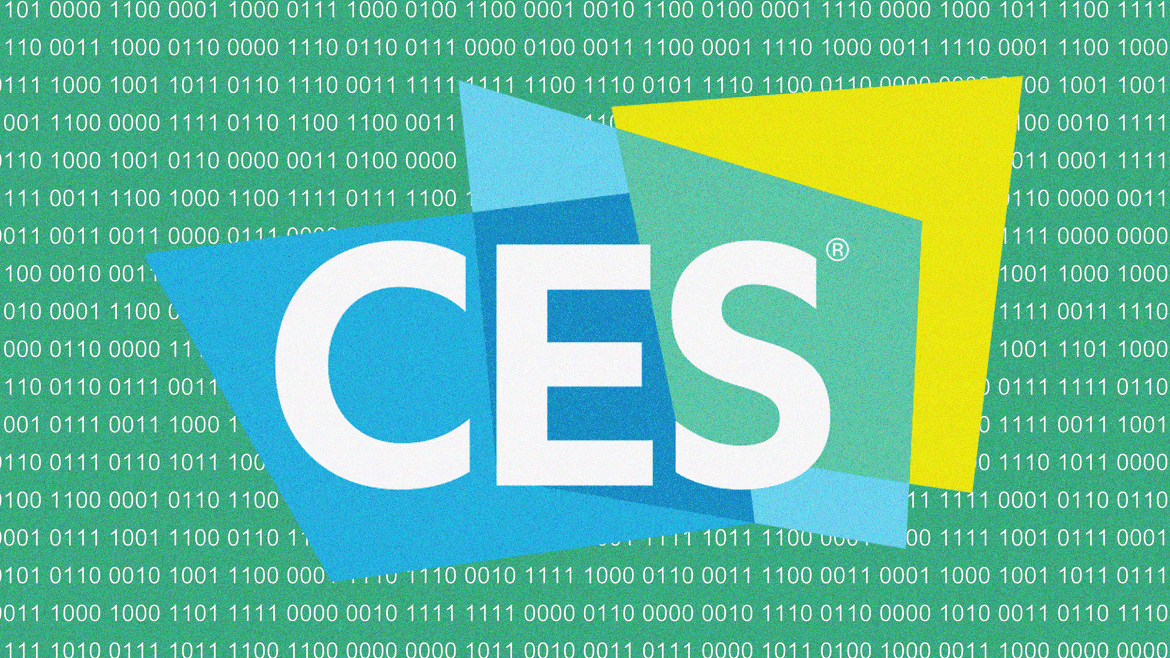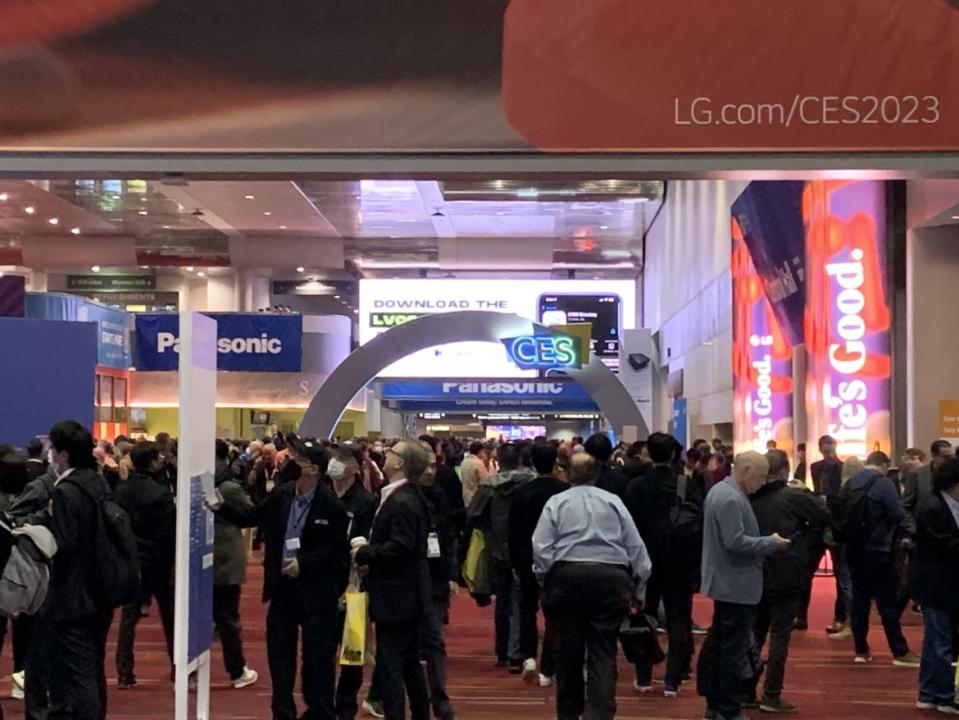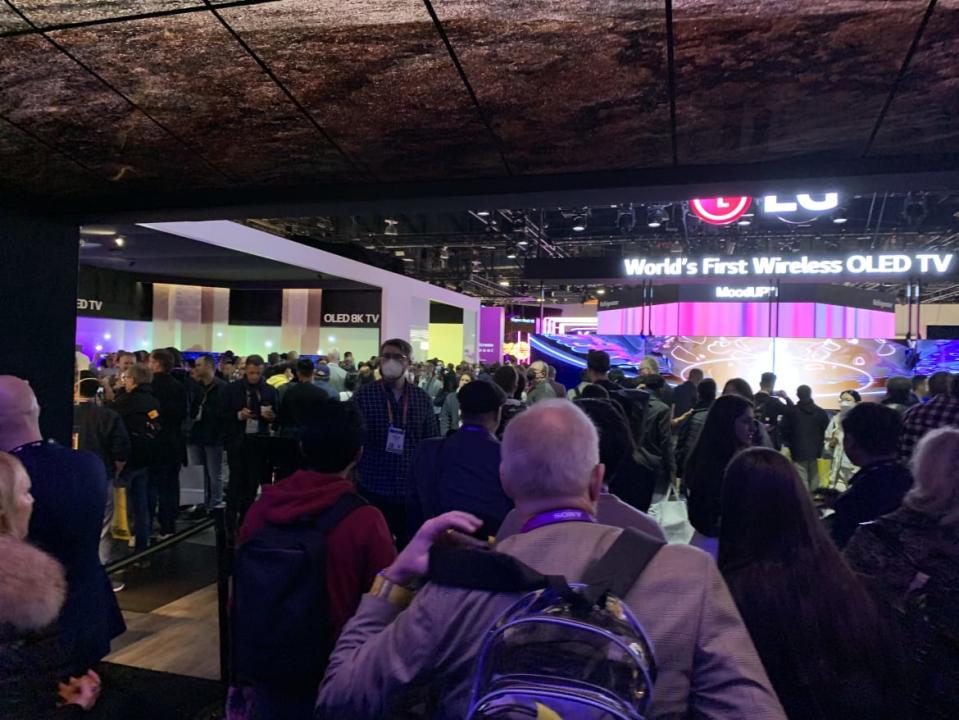The Tech Industry Plots Its Comeback After a Hellish 2022—Starting With CES

LAS VEGAS, Nevada—The tech industry’s troubles of 2022 have done little to dampen the bubbly enthusiasm at the vast annual trade show known as CES, long known for its trade-show-meets-tent-revival vibe.
The show, which opened Thursday in Las Vegas and is expected to draw around 100,000 industry participants from around the world, is on the rebound after being forced to switch to a remote gathering in 2021 by the COVID-19 pandemic and operating in a hybrid format last year. Already the show is seeing a much bigger swell in activity and crowds compared to last year, when CES saw less than 50,000 in-person attendees as the Omicron variant surged through the U.S.
But before that disruption, the gathering formerly known as the Consumer Electronics Show established a reputation for drawing legions of true tech believers from around the globe who unabashedly echo one another’s rosy views of the future they are creating.
The Tech Industry’s Biggest Show Came Back to Vegas This Year—as a Soulless Zombie
So perhaps it’s not surprising that recent mass layoffs among tech industry leaders like Amazon, Meta, and others; turmoil in the cryptocurrency and NFT realms; and fears of a recession caused by high inflation have only let a little air out of the party balloon.
While acknowledging those difficulties and others, Steve Koenig, vice president for research at the Consumer Electronics Association, which puts on CES, told reporters Wednesday that the sector remains strong, for both large companies and startups alike.
“We know that technology is addressing many of the world’s biggest challenges” such as climate change and global hunger, he said, echoing the “human security” theme of this year’s show.
During a media preview of CES, Koenig also suggested the current economic headwinds actually present an opportunity for the sector. Citing the British economist Christopher Freeman’s observation that innovation tends to accelerate during economic slowdowns, he took issue with the tight monetary policies being enforced by the Federal Reserve and other international banking regulators, which he said are hammering both businesses and consumers.
“There’s another way, there’s a better way to fight inflation, and that’s by boosting productivity,” something the tech industry excels at, he said.
Koenig noted that both the Great Recession of 2008-2009 and the economic damage of the COVID-19 pandemic led to explosions of innovation. The former gave birth to 4G, which enabled internet broadband; while the latter forever changed the notion that jobs can only be done in person, he said.

He also challenged the view that the tech sector has been seriously set back by the recent rough seas, saying that progress has continued apace on many fronts. He highlighted a number of technology trends to bolster his contention, including:
The advent of faster, more reliable 5G—the fifth generation mobile network—which will enable what he called the “metaverse of things” by allowing developers to connect all kinds of machines, objects and devices online.
Advances in autonomous vehicle technology, which now include trucks, watercraft, aircraft and heavy machinery like a self-piloting John Deere tractor highlighted at CES.
The growth of robotics in the workplace, which Koenig claims is resulting in “a new kind of machine partnership” that can mitigate risks to workers and lower insurance costs for manufacturers.
Increasing production of electric vehicles and the “evolution of the electrification ecosystem” needed to power them, such as new battery technologies and more charging options.
New capabilities in remote health monitoring, an extension of the telehealth boom created by the pandemic.
Continued growth in gaming, driven by the development of the metaverse and immersive hardware.
While discussion of such big ideas has always been a big part of CES, the show’s biggest draw has arguably always been its showroom floor for attendees to check out the latest gadgets exhibited and demoed across the 4.6 million square feet of the Las Vegas Convention Center, as well as numerous spaces in nearby hotels. Even before noon, the Las Vegas Monorail was already reaching capacity, leading to wait times of an hour or longer to board. Within the packed attendance halls, few wore masks—a telltale sign that COVID-19 no longer had the grip over the show as in years past.
The Metaverse Is Inevitable—but Not How Mark Zuckerberg Expects
Those new products, devices, and apps can range wildly from fascinating to outlandish. A few spotted on a first excursion through several of the show’s far-flung floors on Wednesday and Thursday:
A “contactless” cooking machine that prepares freshly made ramen without the need of a human hand.
The world’s first “smart bird feeder,” specifically designed for hummingbirds.
A pocket-size multilingual defibrillator that its creators say could drastically reduce the number of fatal heart attacks outside of a medical setting.
A “smart sleep mask” that monitors REM (rapid eye movements) with the aim of improving a user’s down time.

While many of the advances being highlighted at CES are noteworthy, several tech industry observers I spoke with said they are not anticipating any bombshell announcements during the show, which runs through Sunday.
But one interesting piece of news did emerge late Wednesday during a 45-minute press conference by Sony Corp. CEO Kenichiro Yoshida.
In the midst of highlighting his company’s many entertainment, software and hardware initiatives, Yoshida unveiled a prototype of a new electric vehicle brand known as “Afeela,” developed in partnership with Honda.
The Last Big Obstacle to Electric Cars Is All in Your Mind
He said the car would have autonomous driving capabilities as well as a “best-in-class cabin entertainment system,” powered by technology from hardware maker Qualcomm, including its "Snapdragon" digital chassis. He said the companies intend to make the first deliveries of the round-cornered vehicle sometime in 2026.
“We are writing a new chapter in the way people move,” he said.
As Reuters noted, the announcement demonstrates how manufacturers are increasingly focused on the cockpit experience in cars, especially as autonomous driving capabilities improve. Such added services could allow companies to develop new revenue streams by selling subscription services to what is the epitome of a captive audience.
Get the Daily Beast's biggest scoops and scandals delivered right to your inbox. Sign up now.
Stay informed and gain unlimited access to the Daily Beast's unmatched reporting. Subscribe now.

